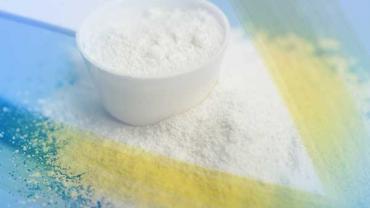
Gut health is paramount for achieving and maintaining overall health and wellness. However, this vital organ system is far too often ignored in the face of chronic health conditions such as cardiovascular disease, autoimmune disease, cancer, and others. Given the fact that nearly 80 percent of the immune system is housed in the gut, its health impacts inflammatory markers – a root indicator of chronic disease.
A vital indicator of gut health is the degree of intestinal permeability. Increased intestinal permeability is marked by the opening of the tight junctions which make the gut “leaky.” This situation gives various toxins, allergens, infections, and undigested food particles access to systemic circulation, which initiates an inflammatory response from the immune system. The villi of the intestinal walls are ground zero for both inflammation and oxidative stress. Therefore, maintaining healthy villi and ensuring tight junctions in the epithelial barrier is crucial for decreasing intestinal permeability and reducing the risks of associated health conditions.
L-glutamine is a unique nutrient that is the preferred energy source for both immune cells and enterocytes, and has been well-studied as a “gold standard” nutrient for villi health. This amino acid comprises over 50 percent of the body’s amino acid pool and is involved in various metabolic pathways. Its structure consists of two nitrogen side chains: an amino group and an amide group which provide carbon and nitrogen for the rapid growth and differentiation of cells. Various clinical studies have shown glutamine to be able to increase the height of intestinal villi, reduce intestinal mucosal permeability, enhance intestinal immune function, prevent bacterial translocation, and contribute to maintaining the intestinal mucosal barrier. It modulates the function of lymphocytes, macrophages, and neutrophils.
In a meta-analysis of 21 clinical trials determining the effects of glutamine on markers of intestinal inflammatory responses and mucosal permeability, glutamine supplementation was associated with significantly reduced inflammatory markers including C-reactive protein (CRP), tumor necrosis factor-α (TNF-α), and interleukin (IL)-6. These markers regulate cytokine activity and are mediators in trauma, infection and stress situations. Markers of intestinal permeability including lactulose/mannitol ratios and levels of diamine oxidase, D−lactic acid, and endotoxin were also reduced with glutamine supplementation.
Hyperthermia in humans following an exercise activity often induces greater intestinal permeability through the opening of tight junctions and explains why many individuals experience gastrointestinal distress following exercise. This effect is usually minimized by heat shock proteins which are upregulated during exercise and increase the stability of tight junctions while reducing permeability to heat stress. Clinical studies have shown that glutamine increases heat shock protein production and function, which stabilizes the tight junction protein occluding, and protects intestinal permeability during stress. Glutamine has also been shown to suppress NF-κB, a transcription factor for many proinflammatory cytokines, during recovery from exercise stress. Glutamine, therefore, can protect intestinal permeability from short-term events that may precipitate the opening of tight junctions.
Severe burns are another incident that causes intense oxidative stress and systemic inflammation, leading to intestinal mucosal barrier damage. In a study that sought to discover the effects of glutamine on intestinal mucus barrier after burn injury, glutamine improved intestinal mucosal blood flow, decreased diamine oxidase activity, and reduced intestinal damage, which alleviated intestinal mucous permeability. Trauma often results in the loss of the mucosal layer, contributing significantly to dysfunction of the gut barrier in patients with conditions associated with ischemia-reperfusion-mediated gut injury or intestinal hypoperfusion, which occurs with burns. Tissue ischemia damages cells, which interferes with cellular metabolism and slows tissue repair. Decreases in ATP in intestinal epithelial cells following a burn injury exacerbates cell damage, delays repair, and interferes with mucus synthesis in goblet cells. Glutamine protects the structure and function of goblet cells, thereby helps to maintain the intestinal mucus barrier after burn injury.
Glutamine improves intestinal mucosal repair and restoration of barrier function of the intestinal mucosa using various mechanisms. These universal and essential activities of glutamine give it notoriety for tackling a foundational cause of many health conditions. In its dedication to fixing and maintaining the integrity of the gut, glutamine possesses a special niche.